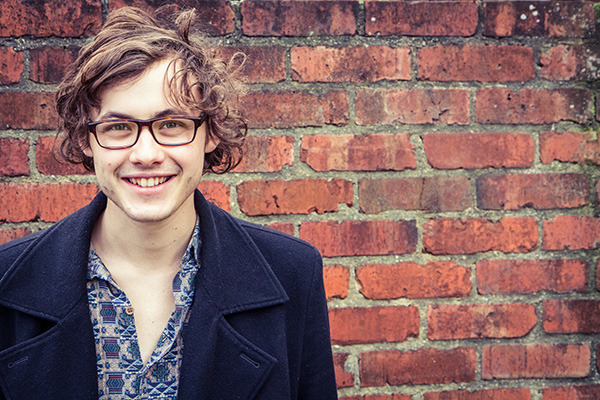Interview: Richard Ley-Hamilton
When did music become a big part of your life?
When I was about ten or eleven I was going through my mumís attic and I found my grandmotherís guitar Ė I never met my grandmother but the guitar was a really cool, old acoustic. It had no strings on it. I went and got it restrung and I thought, ďwhat the hell Ė Iíll go and get some lessons.Ē
When I did music at university for the first couple of years it was all about learning the rules so you know how to break them, but I thought ďletís just bypass the first thing, about learning the rules.Ē
Some people need to know them.
Yes, but for me I didnít feel like I wanted to. I think I learned ďthe rulesĒ by osmosis Ė by listening to lots of music it gets built into you. There are things that you find familiar and things that click with you and you understand the rules that click with you. The band Males is all about rules and structures Ė itís about fulfilling those but interweaving enough individuality and surprise into that so when people hear our music they feel there is something distinct about it, but thereís also an essence of familiarity that they can relate to.
The biggest thing I despised about learning technique is the whole idea of high culture art where people come along and watch people who are bigger, better and superior to them who dictate creativity and dictate everyone else. Everyone has the potential to be creative and thatís what irks me more than anything.
How do you then separate yourself from other musicians but also earn an income?
If I knew the answer Iíd be doing that already! I feel like from the start off, what Iím going to write about Ė and how I will approach music Ė is going to be individual to an extent, and with that individuality in mind I can abide to the rules that are needed to fit into the music industry.
How did you continue your interest in music once you went to university?
Music and education are kind of equal plane. Theyíre like two horses in a very, very long race, and neither of them is going to win out in the end. But they spur each other on. A philosophy of mine is to keep as many options as open as possible. I hate closing doors. Thatís why Iím a part of so many bands. I see so many unique and fantastic individuals around town making music and I just want to be involved. Itís not enough for yourself just to create music; itís about engaging with other people and creating something thatís beyond yourself.
Are you ever satisfied with the music you make?
I have high standards for myself that I will never meet. Ever.
What about making money?
There is that reality. Thatís one of the main reasons why I started writing the songs for Males because I thought, ďokay Ė youíve tried the music that makes just you happy. Youíve tried the music that your friends enjoy playing with you. Now itís time to try something thatís more accessible.Ē I want people to enjoy this music; I want people to have a good time. Hopefully Males will be the avenue that gives me that sense of security and helps me continue making music for the next few years.
What goes through your mind when you are on stage?
Being on stage is the most enjoyable part of being a musician. Once we start performing at a gig I will spend the rest of the set in a completely different state.
In a lucid state?
Yes. A lot of the times I am more lucid on stage than any other part of life. I experience moments of complete clarity. I shoot onto auto-pilot, I am aware of myself doing things but Iím not consciously acting upon it all the time. When I perform and people are cheering at the end of songs and shouting fractions of lyrics out itís not an amazing feeling, itís a surreal feeling. I donít understand it.
Does it feel like the audience is worshipping you?
I feel like theyíre worshipping the experience. Each venue has its own atmosphere, each composition of people has its own atmosphere, and for that exact moment a song has propelled the audience into a moment where theyíre euphoric about things. Bands take all the glory but so much more leads to these moments Ė itís about getting the right lighting, the right sound, the right people, the right number of drinks in people.
If you were a drug what would you be?
Maybe Iíll choose nicotine. Smoking is such a reflective thing. You see smokers all the time and theyíre just sitting there in their own thoughts, contemplating their day, what theyíre about to do next. I see cigarettes as a way of tangibly dealing with weakness, because we all have aspects of addiction and weaknesses of character that we have internalised, and having a smoking addiction is a way of seeing that and it gives you some sense of control Ė or helplessness. Either, or.
Itís externalising your flaws? Wow Ö how do you balance being almost a full-time musician and a history honours student?
I balance it terribly. Music is what makes me tick, what keeps me sane. Other people have dependencies on other things Ė relationships, drugs, routine Ė for me, itís music. If I donít pick up a guitar or listen to songs in a day it freaks me out! I feel like Iíve lost my bearing.




